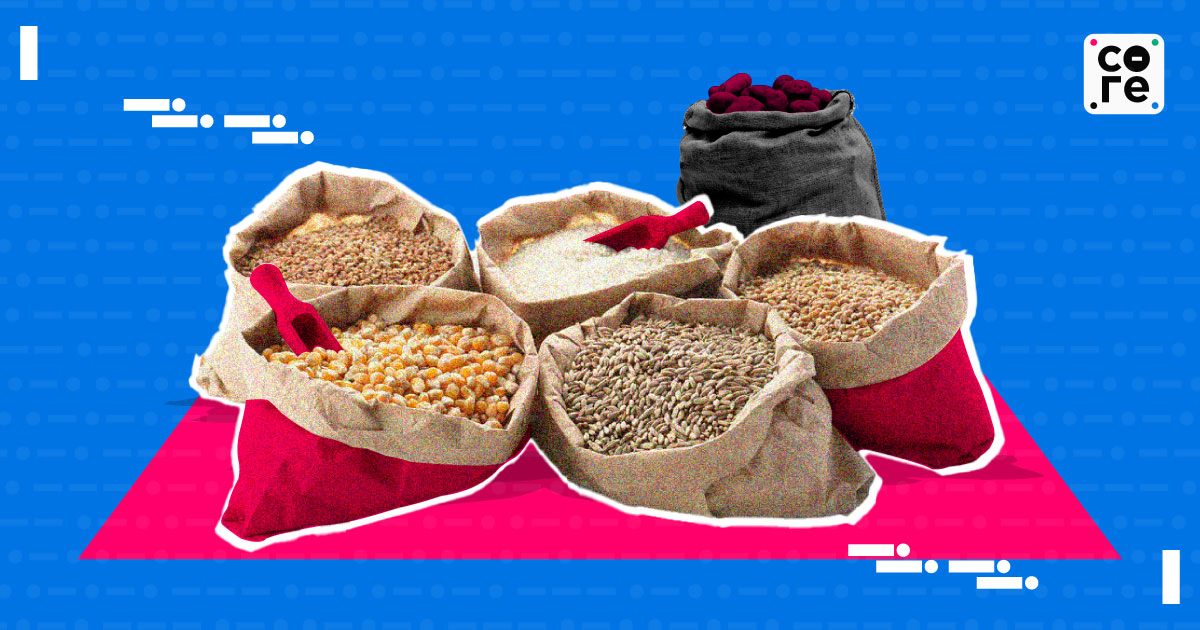
Delayed Monsoon Sparks Food Inflation Worries
The slow monsoon progress has led to a delay in sowing of key kharif crops like paddy, pulses and oilseed

We knew the monsoons were going to be delayed in India because of various reasons. Now the delayed monsoon has led to a jump in food prices in the last couple of weeks. Prices of rice and rice products like poha and murmura shot up by 15%. Prices of grains like jowar and bajra have also gone up, and prices of wheat and pulses like moong, urad, and oilseeds are expected to stay firm or increase if there is not enough or sufficient rainfall, The Economic Times said in a report. Prices of cottonseed have gone up by 50-100%, due to steep fall in production last year caused by heavy rains in Andhra Pradesh and Telangana, while prices of pulses are also exceptionally high compared to last year.
When it comes to paddy, which has a longer sowing window until the end of July, the overall acreage is unlikely to see significant decline. However, crops like pulses, oilseeds and cotton, which have a sowing window limited to the first week of July, acreages are likely to decline if deficit rainfall conditions continue till the end of June, Pushan Sharma, Director - Research at CRISIL Market Intelligence and Analytics to...
We knew the monsoons were going to be delayed in India because of various reasons. Now the delayed monsoon has led to a jump in food prices in the last couple of weeks. Prices of rice and rice products like poha and murmura shot up by 15%. Prices of grains like jowar and bajra have also gone up, and prices of wheat and pulses like moong, urad, and oilseeds are expected to stay firm or increase if there is not enough or sufficient rainfall, The Economic Times said in a report. Prices of cottonseed have gone up by 50-100%, due to steep fall in production last year caused by heavy rains in Andhra Pradesh and Telangana, while prices of pulses are also exceptionally high compared to last year.
When it comes to paddy, which has a longer sowing window until the end of July, the overall acreage is unlikely to see significant decline. However, crops like pulses, oilseeds and cotton, which have a sowing window limited to the first week of July, acreages are likely to decline if deficit rainfall conditions continue till the end of June, Pushan Sharma, Director - Research at CRISIL Market Intelligence and Analytics told The Core.
Delayed Monsoon, MSP Raised
While the southwest monsoons set in Kerala on June 8, as against the normal date of June 1, large parts of the country are still largely rain deficient, as per the India Meteorological Department (IMD). For the country as a whole, the cumulative rainfall from June 1 to June 14 was 53% below its long period average (LPA), the IMD said in a release. Further intensifying El Nino conditions could be responsible for the delayed monsoons this year.
The slow monsoon progress has led to a delay in sowing of key kharif crops like paddy, pulses and oilseed. The government last week announced a 5.3% to 10.35% hike in minimum support prices (MSP) of all mandated kharif crops for this season, which include rice, maize, millets, cottonseed and groundnut among others.
"The delay in sowing is expected to be detrimental for crop yields as the critical crop stages like flowering or grain setting may coincide with the anticipated deficit monsoon conditions during the months of August and September," Sharma explained, adding that "such situations may add to the inflationary pressure on kharif crop prices".
Food Inflation a Concern?
The Deutsche Bank last week warned that the delayed monsoon and rise in food prices in July and August could impact inflation, even as official May data showed a cool-off. It estimated the average consumer price inflation to be 5.2% in FY24, as compared to the Reserve Bank of India's (RBI) 5.1% estimate. The possibility of 5% or lower inflation can only play out if food prices do not rise in July and August, it said.
A delayed monsoon impacting kharif crops could lead to food inflation, which might impact interest rates in the coming months. The RBI would be unlikely to cut policy rates unless there is certainty over the inflation outcome, Madan Sabnis, Chief Economist, Bank of Baroda told Financial Express last week.
Sharma told The Core that while prices of paddy and pulses are expected to rise compared to the previous year, in case of soybean and cotton crops, rainfall is not expected to be a determinant of price, and they expect prices to fall, given global trends.
The slow monsoon progress has led to a delay in sowing of key kharif crops like paddy, pulses and oilseed

